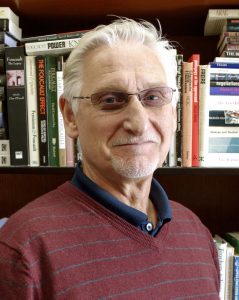UW–Madison faculty and staff who are past winners of a School of Education Seed Grant have published a paper about their important work, titled “Learning how to teach Indigenous history and culture,” in the December 2022 edition of The Learning Professional.

The paper had its genesis several years ago as part of the School of Education’s Grand Challenges initiative, which launched in 2017 in an effort to ignite cross-disciplinary innovation. During the 2018-19 academic year, Bruce King, Laura Lang, Sara Krauskopf, Nicky Bowman, Cheryl Bauer-Armstrong, Rachel Byington, Claire Bjork, and Maria Moreno developed a Grand Challenges Seed Grant proposal titled, “Urban Indigenous Arts and Sciences: Creating Educator Professional Development in an Intertribal Context.”Their project was awarded a $75,000 grant in May 2019.
A summary of that initial project noted how “Wisconsin Act 31 requires the teaching of the history, culture, and sovereignty of Wisconsin Native Nations in K-12 public schools. However, teachers currently lack the capacity to teach about Wisconsin Native Nations in urban, intertribal settings where direct connections with tribal lands, staff, and Elders are limited, and numerous tribes are represented in one locality. By combining an established curriculum with an innovative framework for effective educator professional development, this project provides a critical tool to build teacher capacity.”
In 2019, UW–Madison’s Earth Partnership in collaboration with the Authentic Intellectual Work Institute launched an initiative titled, “Urban Indigenous Arts and Sciences: Creating Educator and Professional Development in an Intertribal Context,” which evolved from this proposal. The initiave addressed the challenge that educators often face in effectively and equitably teaching about Wisconsin Native Nations.
Authors of the new paper explain how these efforts have led to important frameworks that can be used to support teachers in developing learning activities that are both authentic and inclusive of Indigenous histories, cultures, and communities for their classrooms.
The paper explains, “Our two-year collaboration aimed to support participating teachers’ efforts to develop intellectually challenging, culturally relevant instructional activities for their classrooms,” that are “both authentic and inclusive of Indigenous histories, cultures, and communities.”
“Our commitments to continue our own learning about what is called for from us as professional learning facilitators indicate that we are on an important journey toward inclusive learning spaces for educators and, ultimately, students,” the paper adds.
Co-authors of the paper are: King, an emeritus faculty associate with the School of Education’s Department of Educational Leadership and Policy Analysis; Lang, associate director and lead coach of the Authentic Intellectual Work Institute; Bjork, an outreach specialist with Earth Partnership; Byington, the tribal youth and community liaison with Earth Partnership; and Bauer-Armstrong, the director of Earth Partnership.
To learn more about the paper, visit this The Learning Professional webpage.